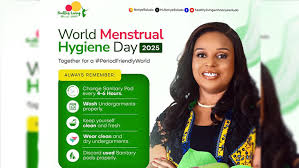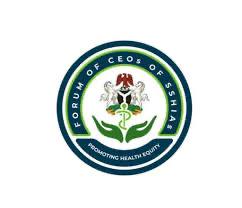The wife of the Anambra State Governor, Dr. Nonye Soludo, has flagged off an impactful menstrual health initiative by setting up sanitary pad banks in no fewer than 300 secondary schools across the state. This move, which is part of her broader Healthy Living Initiative, was announced on Wednesday in Awka in commemoration of the 2025 World Menstrual Hygiene Day.
According to Dr. Soludo, the pad banks are designed to offer urgent menstrual support to young girls, especially those who may be caught unprepared during their monthly cycle while in school. She explained that the project aims to remove the stigma and barriers that menstruation places on the academic focus, dignity, and confidence of schoolgirls.
Quoting recent statistics, she noted that approximately 37 million Nigerian women and girls are unable to afford sanitary pads and are therefore forced to resort to unsafe and unhygienic alternatives. This dire situation, she stressed, not only affects personal hygiene but also poses health risks and contributes to gender-based inequality in education and social participation.
She highlighted findings from the World Health Organisation (WHO) and the United Nations Children’s Fund (UNICEF), which show that inadequate access to water, sanitation, and hygiene facilities continues to undermine safe and dignified menstrual practices in many parts of Nigeria. She further observed that globally, only two out of every five schools provide any form of menstrual health education, while just one in three schools has proper disposal systems such as waste bins for sanitary materials.
“These statistics are not just numbers — they represent real girls, real challenges, and real dreams hanging in the balance,” Dr. Soludo stated. “We must shift from awareness to action. Menstrual hygiene is not a privilege; it is a right that every girl-child deserves to enjoy without shame or obstacles.”
She therefore urged policymakers, development partners, civil society organisations, and community leaders to step up support and advocacy for menstrual health, especially in underserved communities. According to her, it is time for a shift in approach to ensure that more women and girls in need can be reached with timely and adequate menstrual care.
Dr. Soludo also reassured students in the benefiting schools that the pad banks will be routinely monitored and restocked by her NGO to prevent scarcity. She encouraged the girls to access the supplies with confidence and to take pride in their health and wellbeing.
The First Lady’s intervention marks a significant step in addressing a long-neglected public health issue, which continues to affect the dignity, education, and future opportunities of millions of girls in Nigeria. Her message resonates with the global theme of this year’s World Menstrual Hygiene Day, which calls for urgent and inclusive solutions to ensure no girl is left behind due to menstruation.







